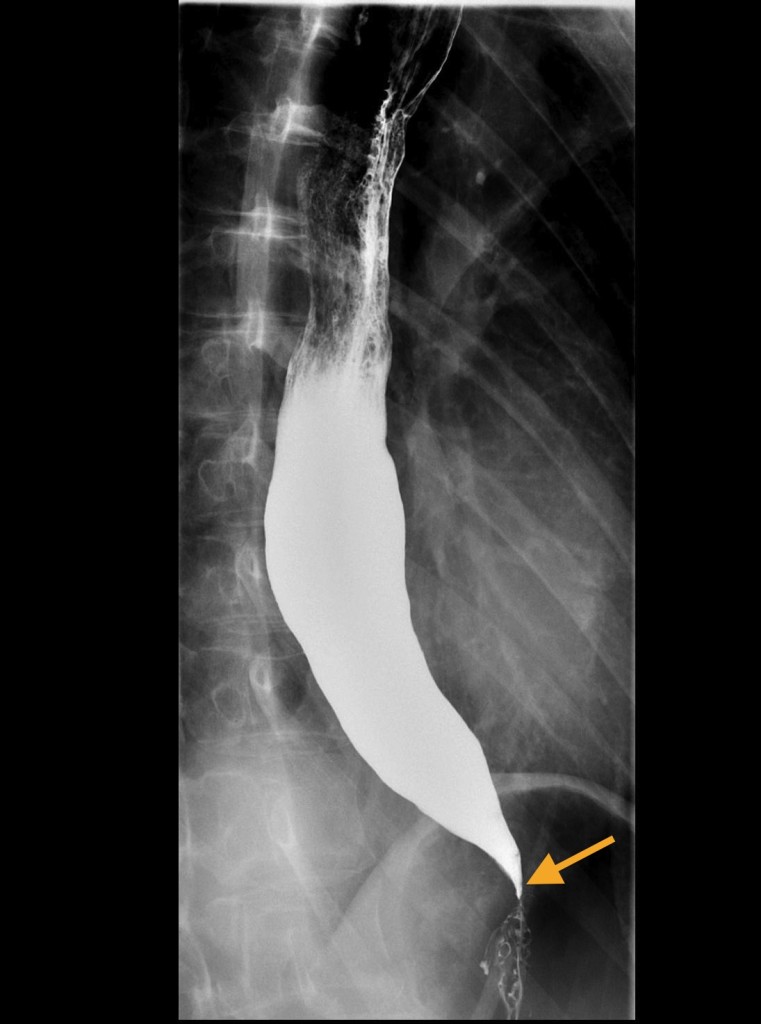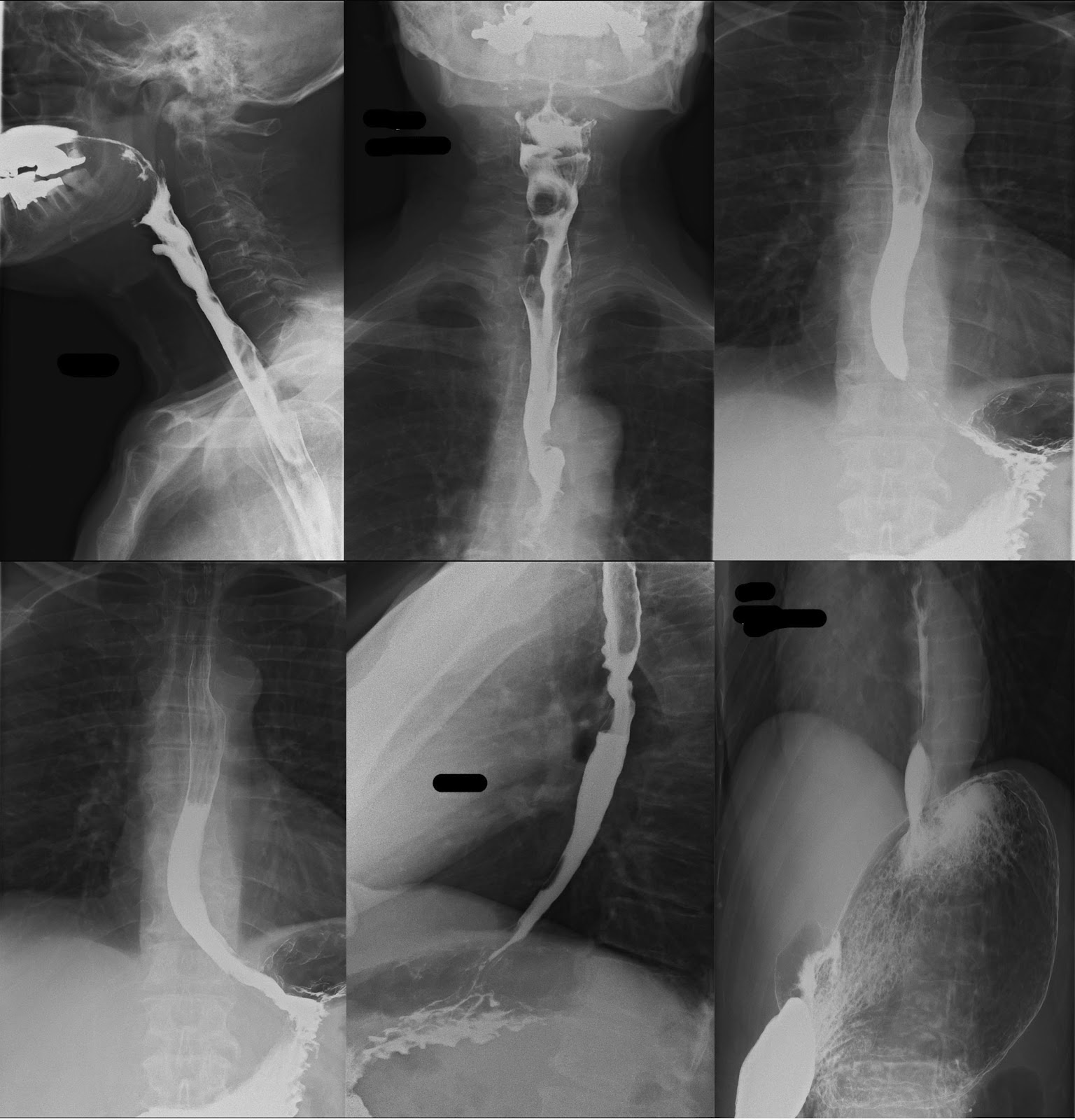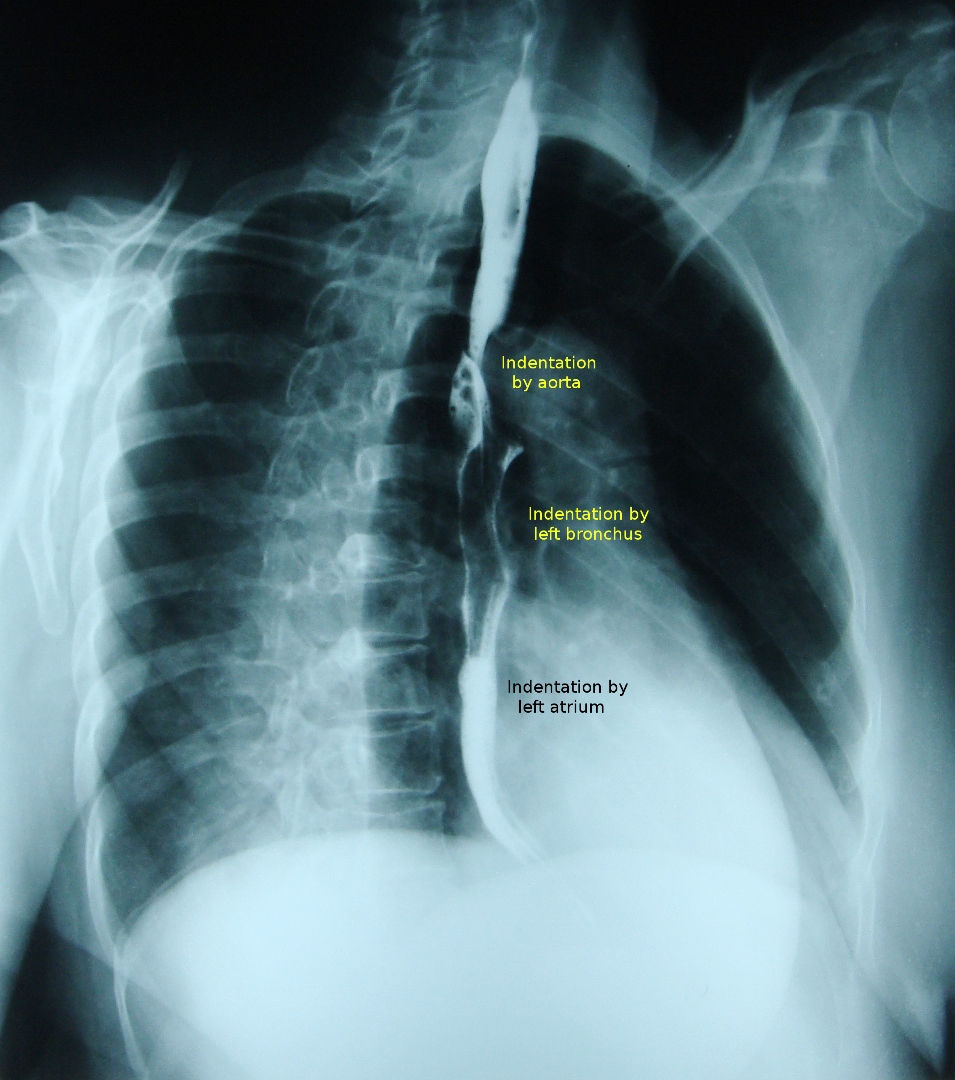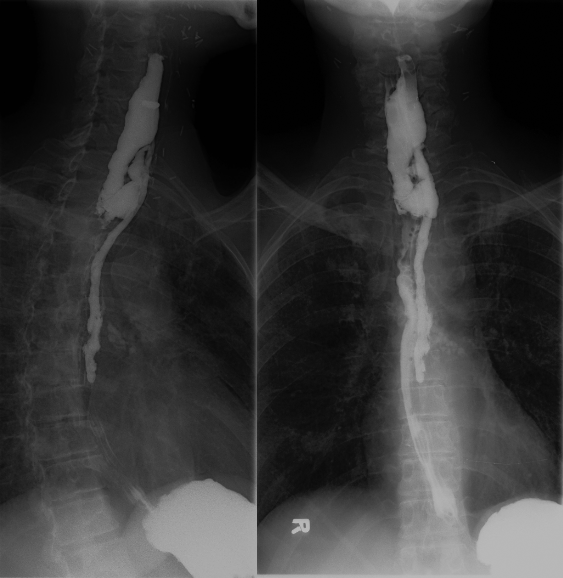Current and accurate information for patients about the upper GI tract x-ray exam (sometimes called an esophagram or barium swallow). Learn what you might experience, how to prepare, benefits, risks and much more.


A barium swallow is a special type of X-ray test that helps your doctor take a close look at the back of your mouth and throat, known as the pharynx, and the tube that extends from the back of the tongue down to the stomach, known as the esophagus. Your doctor may ask you to do a barium swallow to



Functional problems can NOT be visualized generally and require functional-type tests in order to discover the problem. Such tests may include Barium Swallow, Modified Barium Swallow, FEEST, 24 hour pH probe study, multichannel intra-luminal impedance testing, esophageal manometry/motility studies, etc.What test does one obtain?
A barium swallow can highlight abnormalities in the upper gastrointestinal tract. Learn what to expect before, during and after this procedure.


This medical test gives some information about barium swallow, the reason for conducting it, who performs it, some special concerns, guidelines before and after taking the test, what you will experience during the test, risk and complication, and the results.
Has your doctor recommended a modified barium swallow? Learn the purpose of this medical test, who performs it, special concerns, preparations, risks and complications.



Both a barium swallow and a barium meal test involve a series of X-rays being taken of your upper digestive tract.
Care guide for Modified Barium Swallow (Precare). Includes: possible causes, signs and symptoms, standard treatment options and means of care and support.
Barium swallow is a dedicated test of the pharynx, oesophagus, and proximal stomach, and may be performed as a single or double contrast study. The study is often “modified” to suit the history and symptoms of the individual patient, but it is of